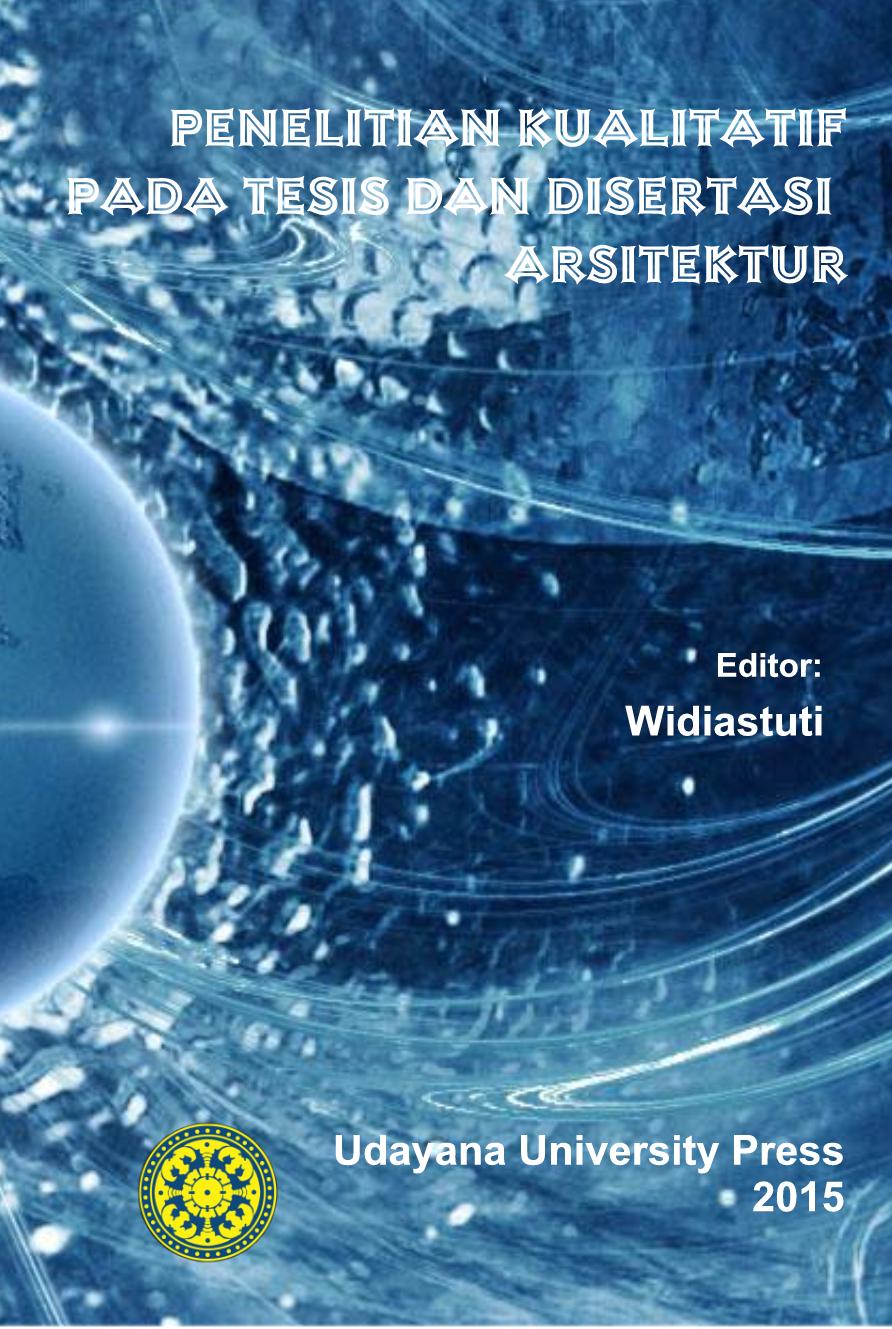
QUALITATIVE RESEARCH IN ARCHITECTURE: SELF-DISCOVERY THROUGH TESIS / DISERTATION WORKS
Widiastuti (ed)
ISBN : 978-6022-940753 Published : 2015
Abstrak
One of the improvements in the quality
of university teachers is achieved by further education at the S2 and S3
levels. S2 and S3 education according to the Indonesian National Qualifications
Framework (KKNI) is divided into two, namely academic orientation (scientific
theory) and vocational orientation (applied research). The difference is, the
level of academic orientation is based on research, while the vocational
orientation is based on practice / applied. The majority of master's and
doctoral education in Architecture in Indonesia is mostly academic oriented. The
logical consequence is that research activities become a necessity.
On one hand, various constraints were
experienced by students with an Architecture background when attending this
advanced education, among others: S1 Architecture education was not formatted
to be a "researcher"; Research Methodology courses are relatively new
to the Architecture education curriculum and to date this course is only a
complement; work as a "consultant" is more promising than the
research world. With all the conditions behind the students' work, research
activities are the only path that must be passed.
There are two choices of research
types, namely Quantitative Research and Qualitative Research. Although this
grouping of opposing dualisms of research disagrees (Trochim, 2007; Groat,
2013), in reality the grouping dichotomy is still used.
This paper will only be limited to
qualitative research with the consideration that the majority of research
conducted by alumni is more inclined there. Also limited to the scope of Thesis
/ Dissertation research not non-academic research. The discussion is more
"introductory" than a complete discussion which is not possible in
very limited writing
